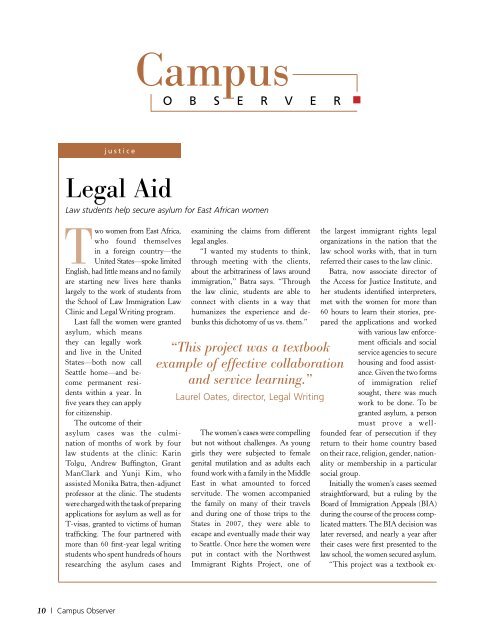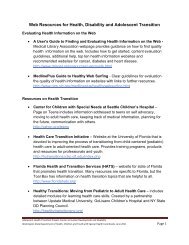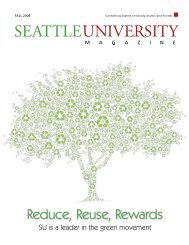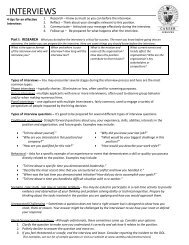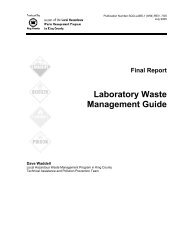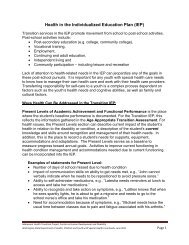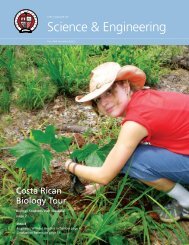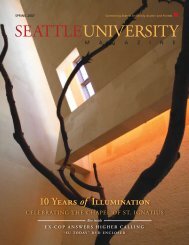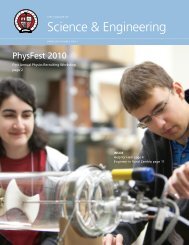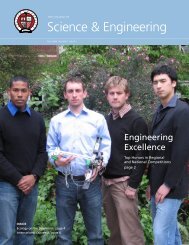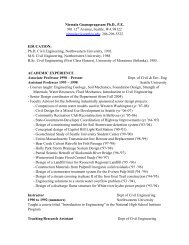Spring 2009 - Seattle University
Spring 2009 - Seattle University
Spring 2009 - Seattle University
You also want an ePaper? Increase the reach of your titles
YUMPU automatically turns print PDFs into web optimized ePapers that Google loves.
Campus<br />
O B S E R V E R<br />
justice<br />
Legal Aid<br />
Law students help secure asylum for East African women<br />
Two women from East Africa,<br />
who found themselves<br />
in a foreign country—the<br />
United States—spoke limited<br />
English, had little means and no family<br />
are starting new lives here thanks<br />
largely to the work of students from<br />
the School of Law Immigration Law<br />
Clinic and Legal Writing program.<br />
Last fall the women were granted<br />
asylum, which means<br />
they can legally work<br />
and live in the United<br />
States—both now call<br />
<strong>Seattle</strong> home—and become<br />
permanent residents<br />
within a year. In<br />
five years they can apply<br />
for citizenship.<br />
The outcome of their<br />
asylum cases was the culmination<br />
of months of work by four<br />
law students at the clinic: Karin<br />
Tolgu, Andrew Buffington, Grant<br />
ManClark and Yunji Kim, who<br />
assisted Monika Batra, then-adjunct<br />
professor at the clinic. The students<br />
were charged with the task of preparing<br />
applications for asylum as well as for<br />
T-visas, granted to victims of human<br />
trafficking. The four partnered with<br />
more than 60 first-year legal writing<br />
students who spent hundreds of hours<br />
researching the asylum cases and<br />
examining the claims from different<br />
legal angles.<br />
“I wanted my students to think,<br />
through meeting with the clients,<br />
about the arbitrariness of laws around<br />
immigration,” Batra says. “Through<br />
the law clinic, students are able to<br />
connect with clients in a way that<br />
humanizes the experience and debunks<br />
this dichotomy of us vs. them.”<br />
“This project was a textbook<br />
example of effective collaboration<br />
and service learning.”<br />
Laurel Oates, director, Legal Writing<br />
The women’s cases were compelling<br />
but not without challenges. As young<br />
girls they were subjected to female<br />
genital mutilation and as adults each<br />
found work with a family in the Middle<br />
East in what amounted to forced<br />
servitude. The women accompanied<br />
the family on many of their travels<br />
and during one of those trips to the<br />
States in 2007, they were able to<br />
escape and eventually made their way<br />
to <strong>Seattle</strong>. Once here the women were<br />
put in contact with the Northwest<br />
Immigrant Rights Project, one of<br />
the largest immigrant rights legal<br />
organizations in the nation that the<br />
law school works with, that in turn<br />
referred their cases to the law clinic.<br />
Batra, now associate director of<br />
the Access for Justice Institute, and<br />
her students identified interpreters,<br />
met with the women for more than<br />
60 hours to learn their stories, prepared<br />
the applications and worked<br />
with various law enforcement<br />
officials and social<br />
service agencies to secure<br />
housing and food assistance.<br />
Given the two forms<br />
of immigration relief<br />
sought, there was much<br />
work to be done. To be<br />
granted asylum, a person<br />
must prove a wellfounded<br />
fear of persecution if they<br />
return to their home country based<br />
on their race, religion, gender, nationality<br />
or membership in a particular<br />
social group.<br />
Initially the women’s cases seemed<br />
straightforward, but a ruling by the<br />
Board of Immigration Appeals (BIA)<br />
during the course of the process complicated<br />
matters. The BIA decision was<br />
later reversed, and nearly a year after<br />
their cases were first presented to the<br />
law school, the women secured asylum.<br />
“This project was a textbook ex-<br />
10 | Campus Observer


